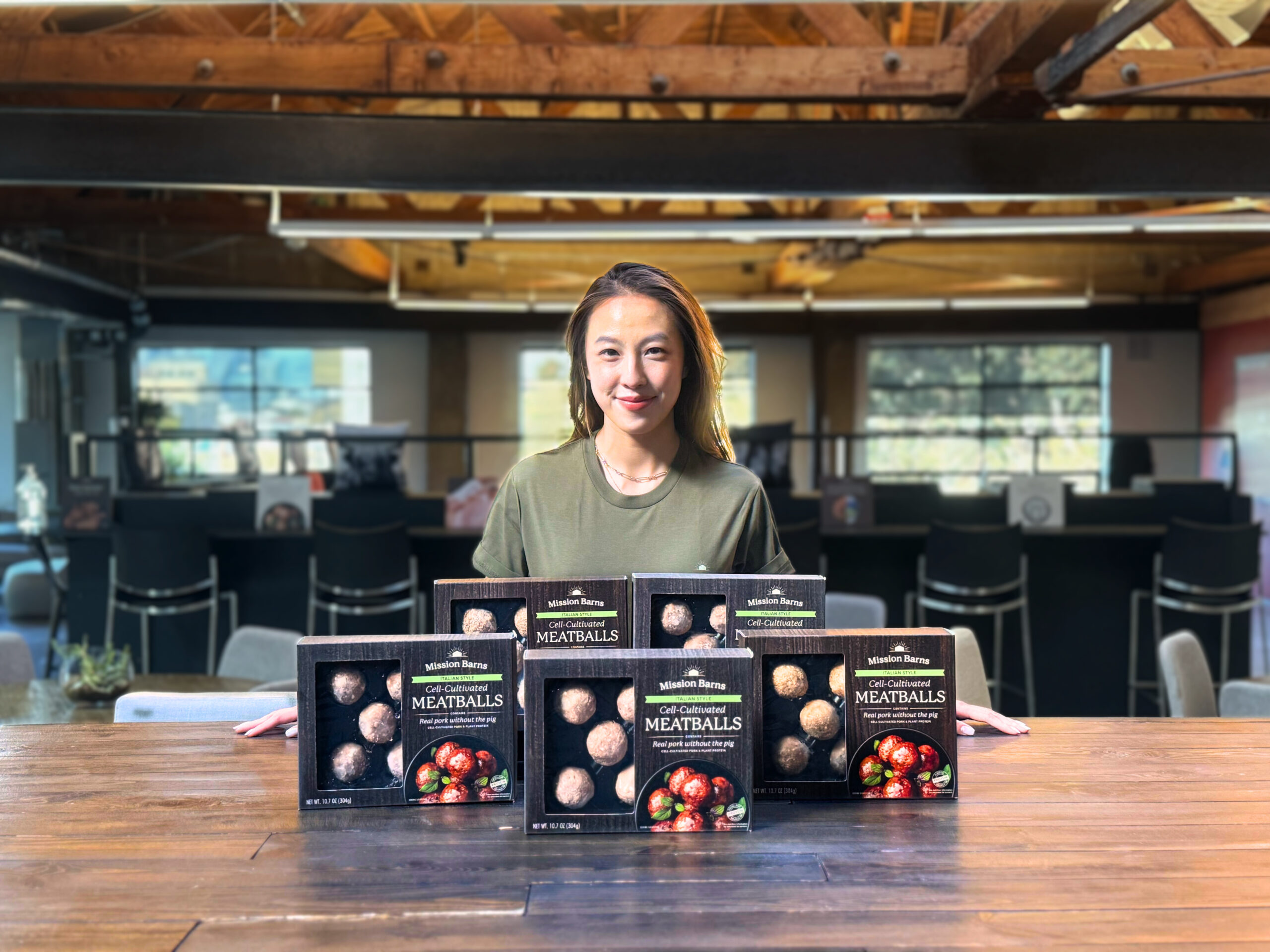The cultivated meat industry is swiftly moving from scientific discovery to market reality, as marked by Mission Barns gaining FDA and USDA approval of its cultivated fat and cultivated pork meat in the US earlier this year, as well as Vow recently garnering the tick of approval from FSANZ to sell its cultivated quail in Australia and New Zealand.
But regulatory approvals are just one piece of defining and capturing a market for cultivated meat products.
Few understand this journey better than Cecilia Chang, Chief Business Officer at Mission Barns, a company redefining the path to commercialisation with a deep focus on understanding customer needs.
Chang’s perspective aligns with a growing consensus among industry veterans: to achieve true scale, alternative protein companies must cater to consumers tastes, not just their interest in planet-friendly products. As Chang puts it, the industry needs to be “brutally honest with ourselves about giving consumers something they actually want, rather than what we think they should want and what consumers claim to want.”
This philosophy is the foundation of Mission Barns’ strategy. While the climate benefits of cultivated meat can spark initial curiosity, Chang asserts they are not enough to drive repeat purchases.
“It’s pretty clear that for a lot of consumers, sustainability is not a sufficiently compelling value proposition to switch to alternative proteins. Taste, and increasingly health, are the real drivers of adoption,” she says.
This focus on consumer-centric attributes is a direct response to a key learning from the plant-based boom: products that fail to deliver on flavour and texture will not achieve mass market success. Mission Barns’ answer to this is cultivated fat—the “missing piece” in plant-based meats that provides the flavour, aroma and juiciness that consumers expect from meat.
Mission Barns’ approach is a masterclass in a “customer-pull” strategy over a “tech-push” model. The company has taken an efficient approach to its go-to-market strategy – rather than building a new retail brand from scratch, they’re focusing on key partnerships to integrate seamlessly into the existing food supply chain.
By partnering with established companies – from large CPGs to traditional meat producers – Mission Barns can leverage their existing infrastructure, distribution channels and market know-how. Cecilia explains this collaborative model allows Mission Barns to “remain lean while scaling efficiently”, a practical reality of moving from lab to plate.
Beyond the strategic partnerships, scaling also required an “unthinkable” technological shift. Cecilia notes that off-the-shelf bioreactors are not designed for the way meat cells naturally grow, forcing Mission Barns to develop its own proprietary system. This custom bioreactor addresses a major limitation in scaling cultivated fat production, proving that a focus on business-first innovation doesn’t mean compromising on groundbreaking science.
In a market still finding its footing after what Cecilia calls “the plant-based hype cycle”, Mission Barns’ dual focus on deliciousness for consumers and efficiency for partners has been key to building trust. Ceclia touts the company’s “portfolio of fat solutions” – made possible by their ability to finely tune the nutritional and sensory profile of their cells – as the way it caters to partners desire to co-develop ingredients for their specific consumer needs. This balance of delivering on consumer expectations and providing a powerful value proposition is the true test of “impact” in the alternative protein industry.
Ultimately, Cecilia’s message is a strong call to industry peers: for alternative proteins to truly scale and achieve their potential, the single most necessary shift is to embrace this “consumer-pull” mindset, translating innovative ideas into products that are not just sustainable, but also delicious, nourishing and attractive to the mainstream consumer.
Want to hear more of Cecilia’s insights? Catch her onstage at AltProteins 25 in “Disruption – Changing the Narrative”, a session where leaders in disruption will unpack how shifting mindsets and rebellious thinking are sparking cultural behaviour change.
AltProteins 25 is Australia’s premiere conference on alternative proteins uniting innovators, policymakers and researchers to shape the future of food, and it’s happening for the fourth time this October 14 in Sydney.
Learn more and register here: foodfrontier.org/altproteins-conference-2025/
